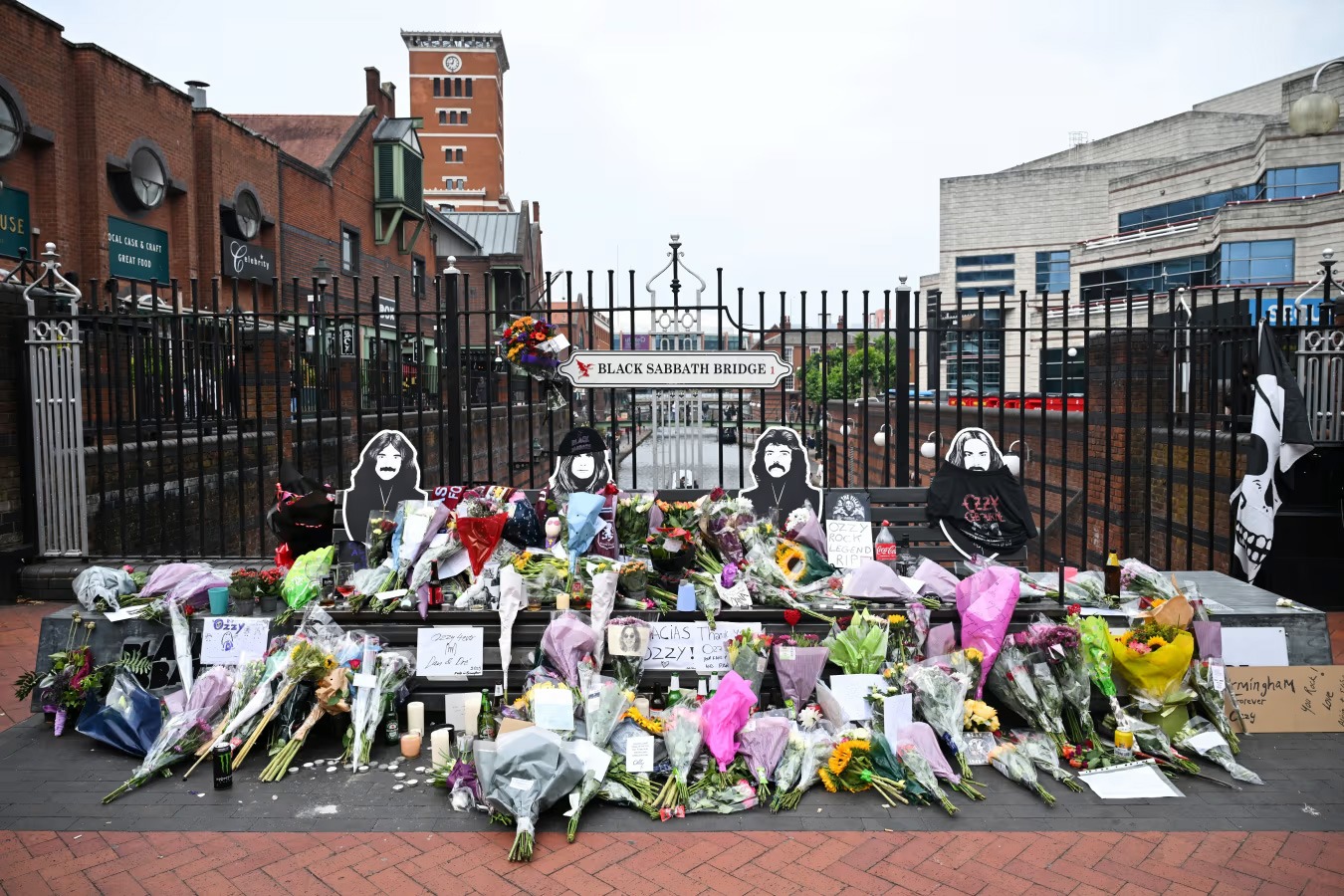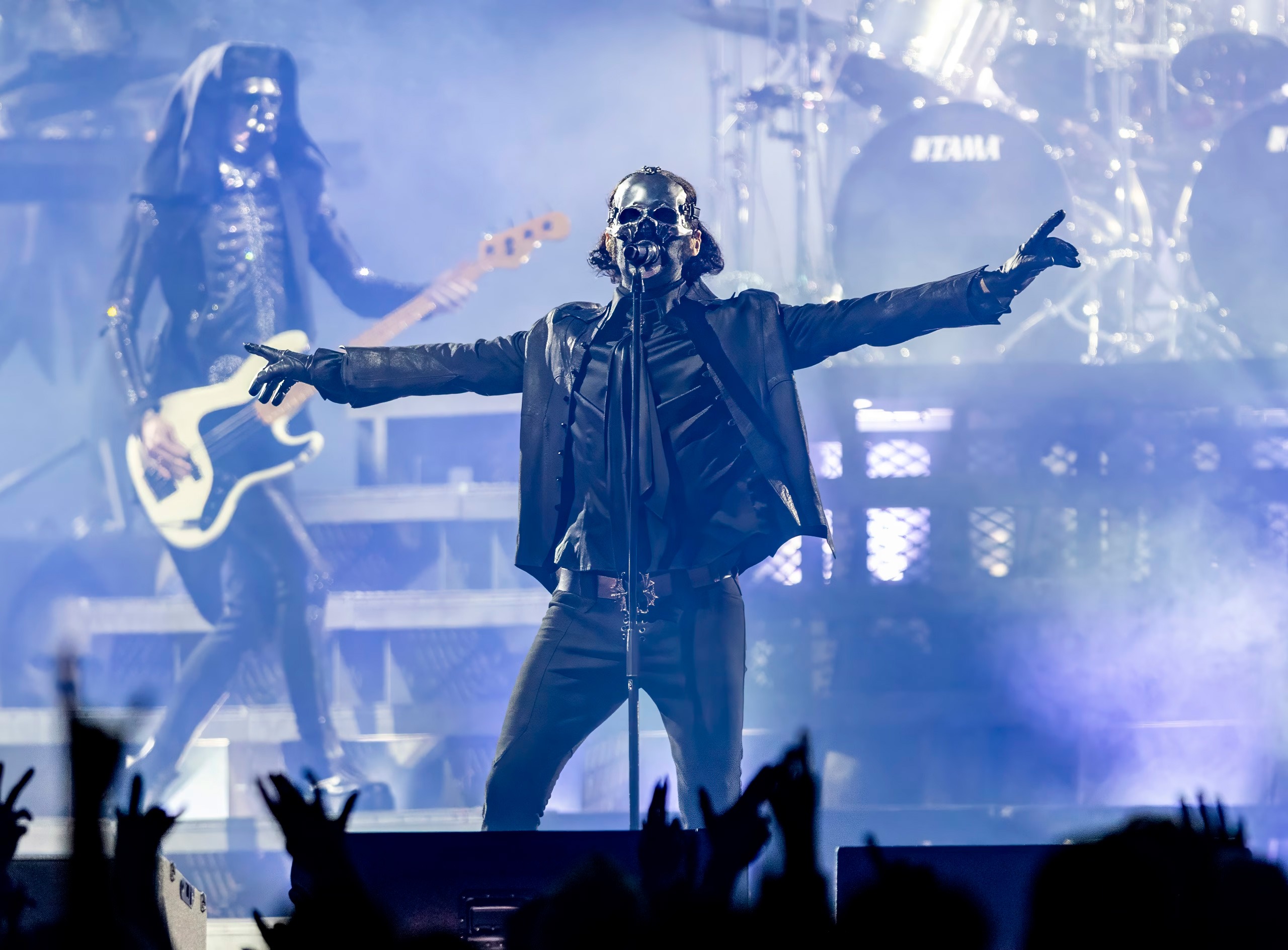Metal bands new and old are selling out arenas and building a Gen Z fan base
Mark Kelehan grew up listening to Ozzy Osbourne, Kiss and Metallica. But he didn’t add new bands to his rotation for 20 years as adult life kept him busy, including with four daughters.
Then, the 50-year-old executive heard the melodic voice of a Swedish rocker who dons the robes of a satanic pope for legions of fans. Aficionados of the heavy-metal band Ghost dress as demonic nuns and skeletal clergy and fill arenas around the world.
Metal was back. He was hooked.
“My four girls are Taylor Swift fans for sure, but it warms my parental and musical heart to hear them singing ‘Satanized’ along with me in the car on the way to school,” Kelehan said. Their family is part of a resurgence in heavy-metal fandom that has stormed a music industry more dominated in recent years by pop stars. Osbourne, the frontman of pioneering metal band Black Sabbath, gave his last performance earlier this month in a concert that served as a farewell. Sitting on a black throne, he sang in front of a crowd of tens of thousands in Birmingham, England. A lineup of metal bands—including the lead singer of Ghost—played in tribute.
Osbourne died about two weeks later, but heavy metal is stronger than ever.

Mark Kelehan and his daughter Julia at a Ghost display at the Grammy Museum in Los Angeles in 2023. A makeshift memorial for the late singer-songwriter Ozzy Osbourne in Birmingham, England. MAJESTY CRUZ; JUSTIN TALLIS/AFP/GETTY IMAGES
Ghost’s rise to the top ranks of global music, and its popularity among Gen Z listeners, is a testament to how the once-ironclad boundaries of musical genres are eroding in the age of streaming.
Younger listeners are streaming ’90s metal bands like Korn and Slipknot who’ve gone back on tour in recent years. Middle-aged listeners have more money to spend on their high-school favorites. Meanwhile, the walls around what is considered metal have fallen as bands blend thrashing guitars with sounds of R&B, pop and jazz.
And the aggressive sounds have struck a chord in the troubled times of the postpandemic world.
Live Nation, the world’s largest concert promoter, said heavy-rock shows are up 14% year-over-year, and bands like Korn, Deftones and Linkin Park are anchoring festivals alongside mainstays like Metallica and Iron Maiden. System of a Down, a band formed in 1994, immediately sold out shows at MetLife Stadium in New Jersey, Soldier Field in Chicago and Rogers Stadium in Toronto. The band added second shows, amounting to more than 60,000 tickets sold in each city.
So far this year, streaming songs in the hard-rock subgenre have been up more than 12% in the U.S., compared with about a 5% increase in overall streaming in the U.S., according to data tracker Luminate. Rock music overall was the fastest-growing genre by market share, outpacing expanding genres like Christian, country and Latin music.
Tobias Forge, the 44-year-old lead singer of Ghost who founded the band in 2006, said when he started buying death-metal records in the early 1990s, the crowds at metal shows were mostly young men, no older than their late 20s.
“Over the decades that have followed, that base has almost exclusively expanded,” Forge said. “Now you have people who are 70 years old down to seven years old, who are interested in this music, which I find really amazing.”
Steve Davis, manager of longtime heavy-metal bands Cannibal Corpse and Ministry and newer bands like Lorna Shore, said the groups are bigger today than they ever have been, selling thousands of tickets on tour every night.



